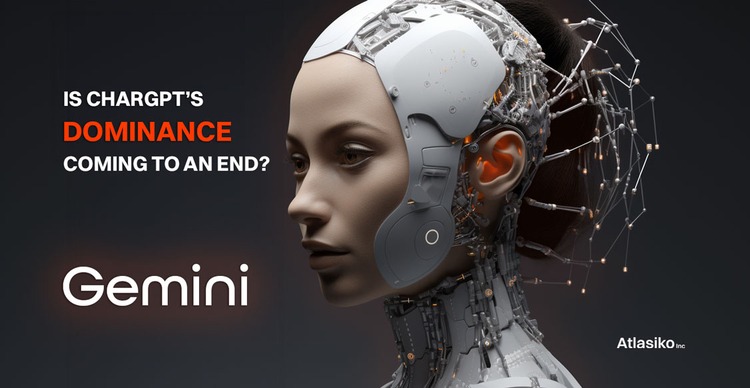In the ever-evolving landscape of artificial intelligence, the once unrivaled supremacy of OpenAI's ChatGPT might soon face its biggest challenge yet. Google, a heavyweight player in the tech industry, is gearing up to launch its new family of large language models under the project name "Gemini." This strategic move by Google signifies a potential shift in the AI race, as Gemini emerges as a formidable contender with significant upgrades.
OpenAI's ChatGPT's reign in the AI arena has been notable, backed by Microsoft's robust data center infrastructure and early entry into the field. However, the unassailable position that ChatGPT enjoys may be on the verge of change. In an era where new and potent AI models are emerging every month, Google's Gemini holds the promise of dethroning ChatGPT's supremacy.
According to a report by The Information, Google's ambitious Gemini project is set to unveil its next-generation artificial intelligence models as early as this fall. Google has strategically positioned Gemini to empower not only its existing AI chatbot, Bard, but also its suite of enterprise applications, including Google Docs and Slides.
Gemini's strength lies in Google's unparalleled resources, especially its extensive and diverse datasets that can be harnessed for training these AI models. Drawing from YouTube videos, Google Books, a vast search index, and scholarly content from Google Scholar, Google wields a trove of exclusive data. This unique advantage might enable Google to craft more sophisticated models compared to its peers. Notably, Gemini distinguishes itself as the pioneering multi-modal model adept at processing text, images, and video, setting it apart from the likes of GPT-4.
Besides, the competitive edge of Gemini extends to Google's deep reservoir of talent and years of expertise in constructing and refining large language models. Industry watchers anticipate Google's formal announcement of these novel models in the upcoming fall, with the possibility of introducing a Gemini-powered chatbot or upgrading the existing Bard chatbot. This move could significantly impact Google's Cloud platform, potentially becoming the primary channel for corporate clients to access and leverage the capabilities of Gemini.
The origins of Gemini trace back to Google's developer conference, where tantalizing glimpses of the technology were showcased alongside other cutting-edge AI projects. A notable influence on Gemini's development is drawn from Alphago's training techniques. This AI system famously conquered the intricate board game Go against a human professional player, as revealed in a June report. By integrating elements from Alphago, Gemini could potentially excel in strategic planning and complex problem-solving.
The formation of Google DeepMind, resulting from the merger of Google Brain and DeepMind's AI research divisions, adds a unique collaborative dimension to the Gemini project. This move, designed to synergize Google's computational might with DeepMind's research acumen, could spell a pivotal moment in the AI landscape. The convergence of expertise from both entities, previously responsible for projects like Project Goodall and Bard, suggests a harmonious effort towards the advancement of Gemini.
The repercussions for OpenAI and other contenders in the AI space are significant, given the combined prowess of Google Brain and DeepMind in shaping the trajectory of Gemini. Reports underline that Gemini's development has witnessed substantial strides in its multimodal capabilities, transcending previous models. Its architecture emphasizes multimodality, equipping it to comprehend and generate diverse data forms adeptly. This versatility extends to handling text, images, and videos, underscoring Gemini's holistic approach.
This facet is poised to elevate Gemini's competence not only in generating conversational text but also in processing an array of inputs, making it a multifaceted AI model with immense potential.
Insider accounts also hint at Gemini undergoing training with twice the number of tokens compared to GPT-4, a factor anticipated to amplify its cognitive capabilities considerably.
As the stage is set for Google's Gemini to make its debut, the AI landscape braces itself for an intriguing face-off that could mark a transformative juncture in the dynamics of AI dominance.







